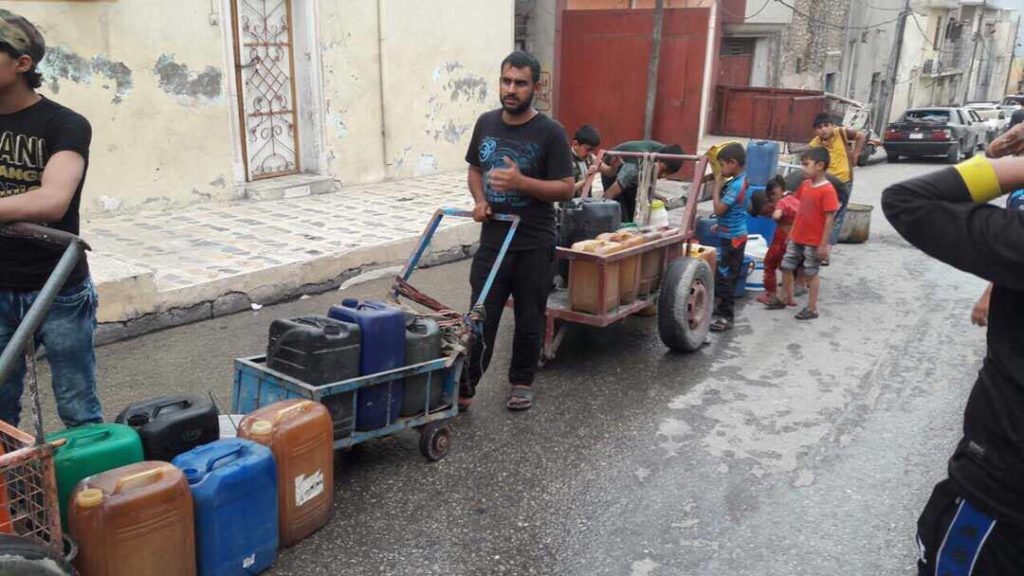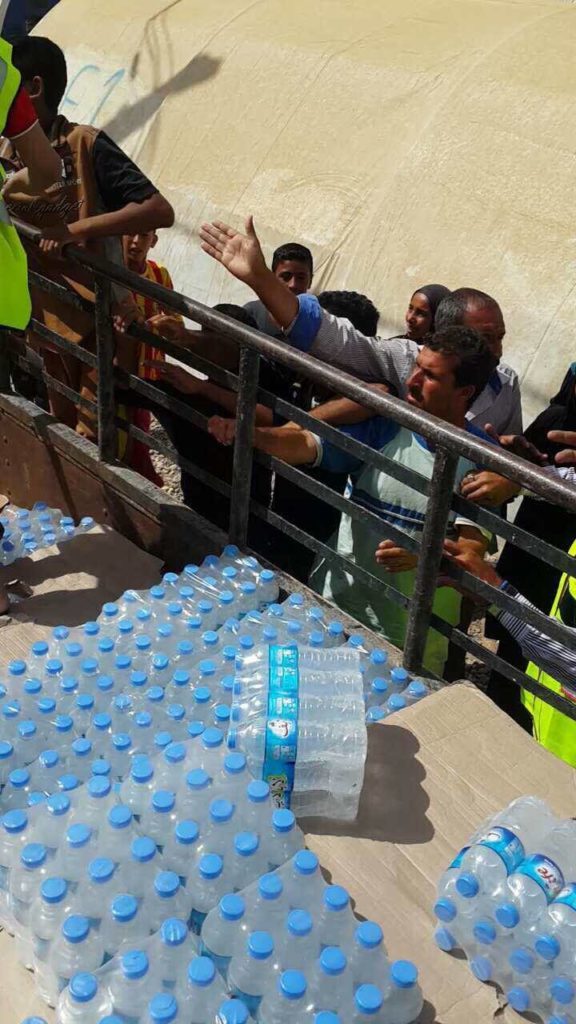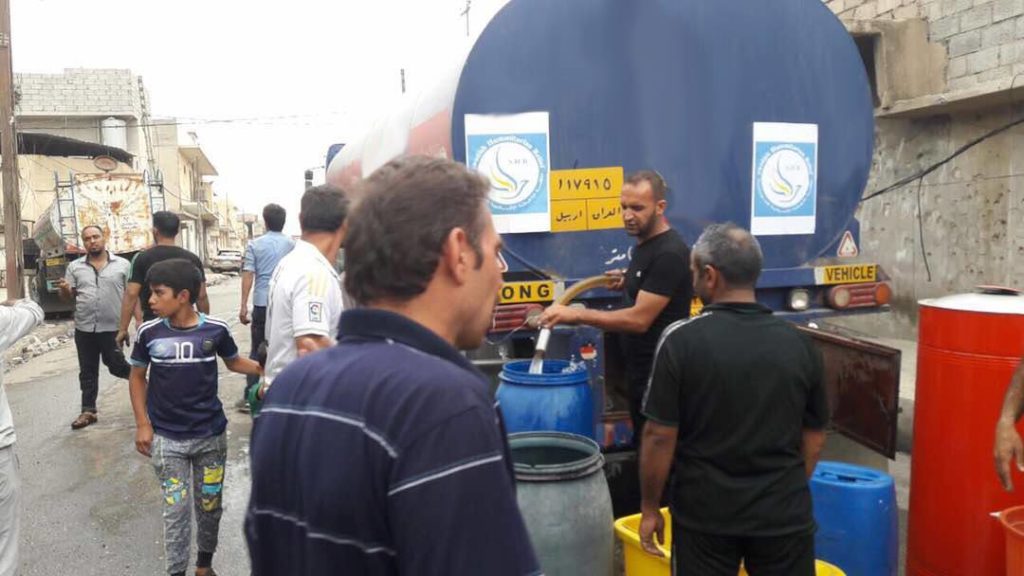SHR in Mosul during the military campaign against ISIS

Swedish_Humanitarian_Relief funded and contributed in various campaign to distribute potable water to IDPs as well as people of Mosul in both coasts during the military campaign against ISIS.
Swedish_Humanitarian_Relief Org. contributes with civil activists in a campaign to distribute potable water in different parts of Mosul
First phase of the campaign: Distribution of 6,000 bottles of water to the new displaced people IDPs in the American Camp / Hammam_AlAlil 
A voluntary aid team of the Swedish_Humanitarian_Relief organization “SHR” headed to WADI_HAJAR area on the West bank of MOUSEL, where aid has not reached yet, and distributed 37000 Liters of potable water to the families of this area in an organized manner, the distribution reached areas that were not reached before by any other organization. Some areas were excluded from this process due to sniping and shelling, which limited the movement of their residents and denied them accesses to aid, where most families cannot leave their homes for fear of snipers. And in order to preserve the life of the citizens and volunteers, it was decided to postpone the process of distribution for these areas till the provision of appropriate conditions.
Important note regarding the used trucks: the used trucks to transport water are the only available mean of transporting drinking water due to severe shortage of water trucks, organizations are currently using these trucks to transport water, as these trucks were used previously by and American Humanitarian organization for the same purpose “transporting water” as this American organization has conducted a fumigation process to remove impurities of whatever substance was in these trucks and made sure it was fit to transport drinking water, additionally, a specialized team from our organization has conducted another round of tests to verify its validity of these trucks to transport water.
Finally: we are currently discussing the possibility of providing better ways for distributing water to the residents by using nearby stations which are “almost destroyed” after rehabilitating them and supplying them with water pipes, filters, and sterilization, in order to obtain water of high purity, to insure the safety of the residents, and the safety of the volunteers who are facing many risks in their movement. 


